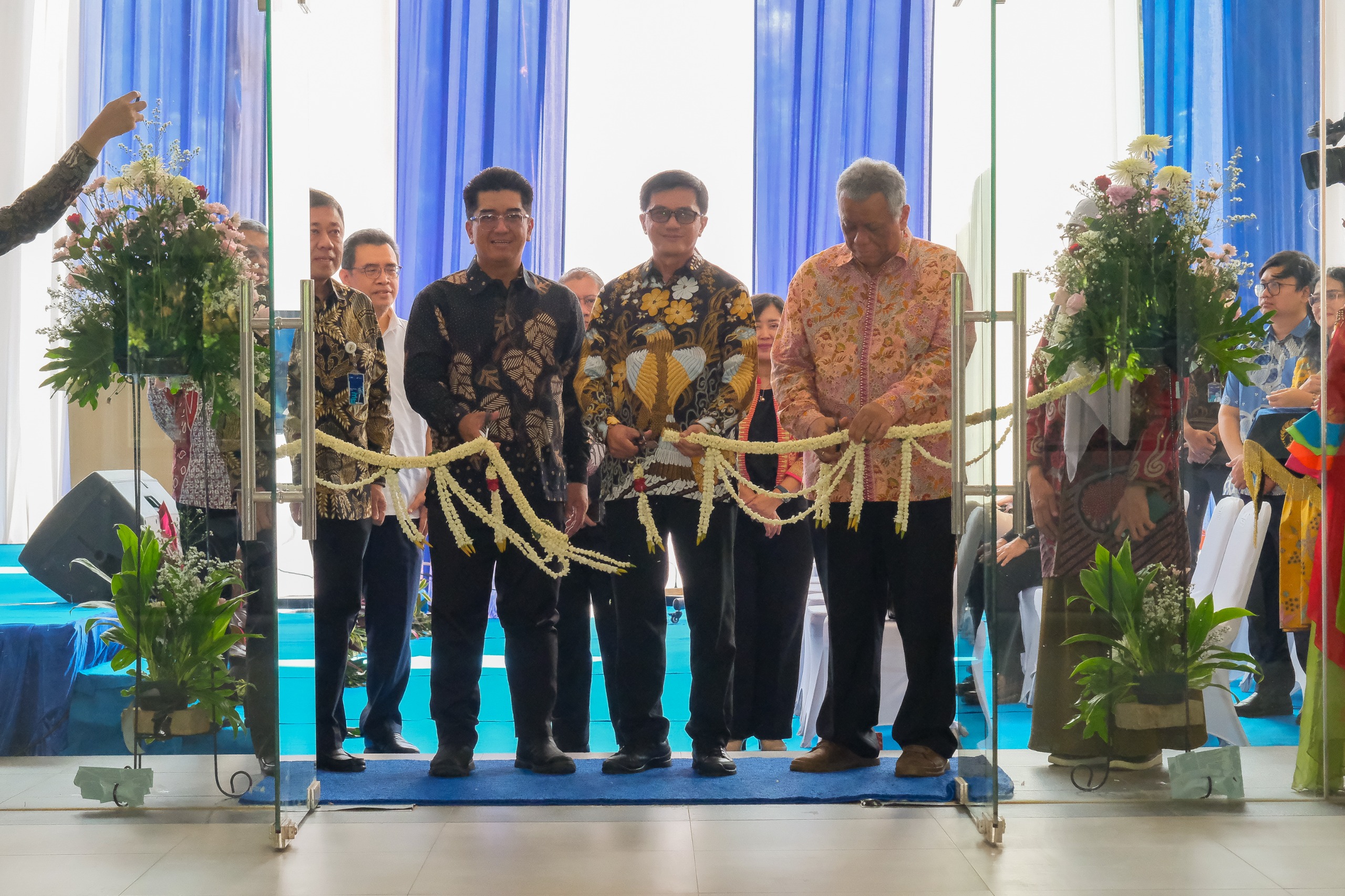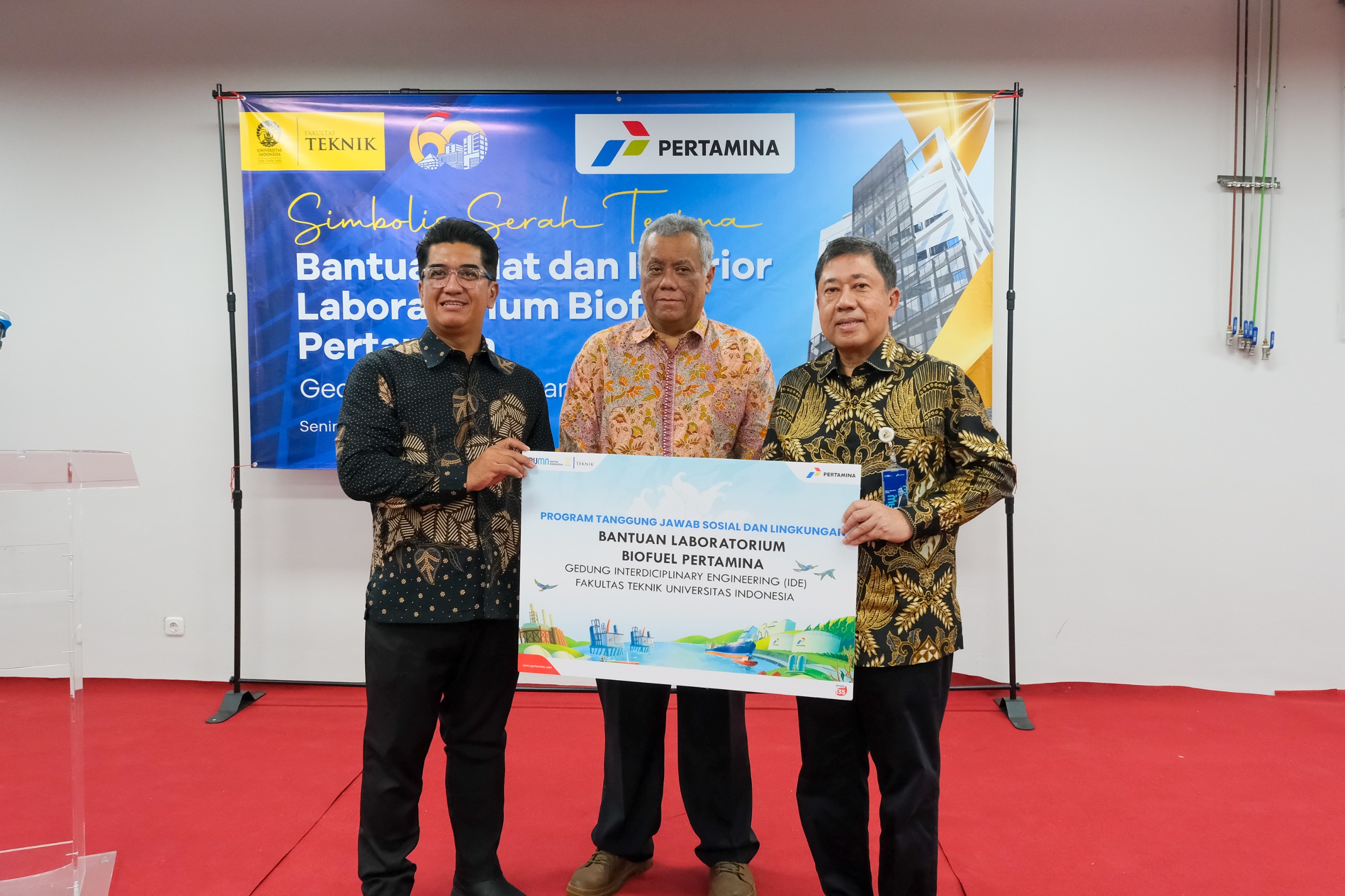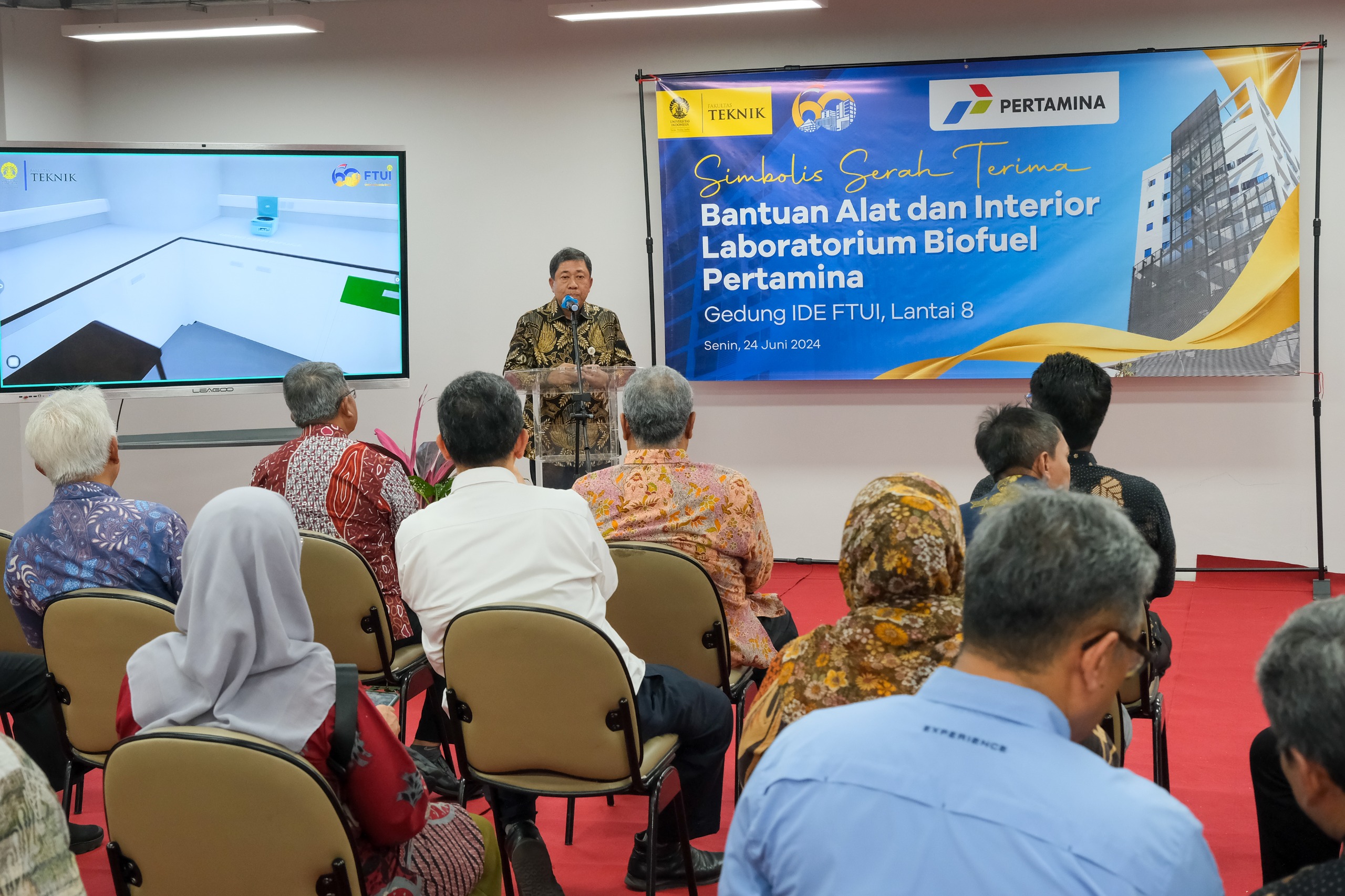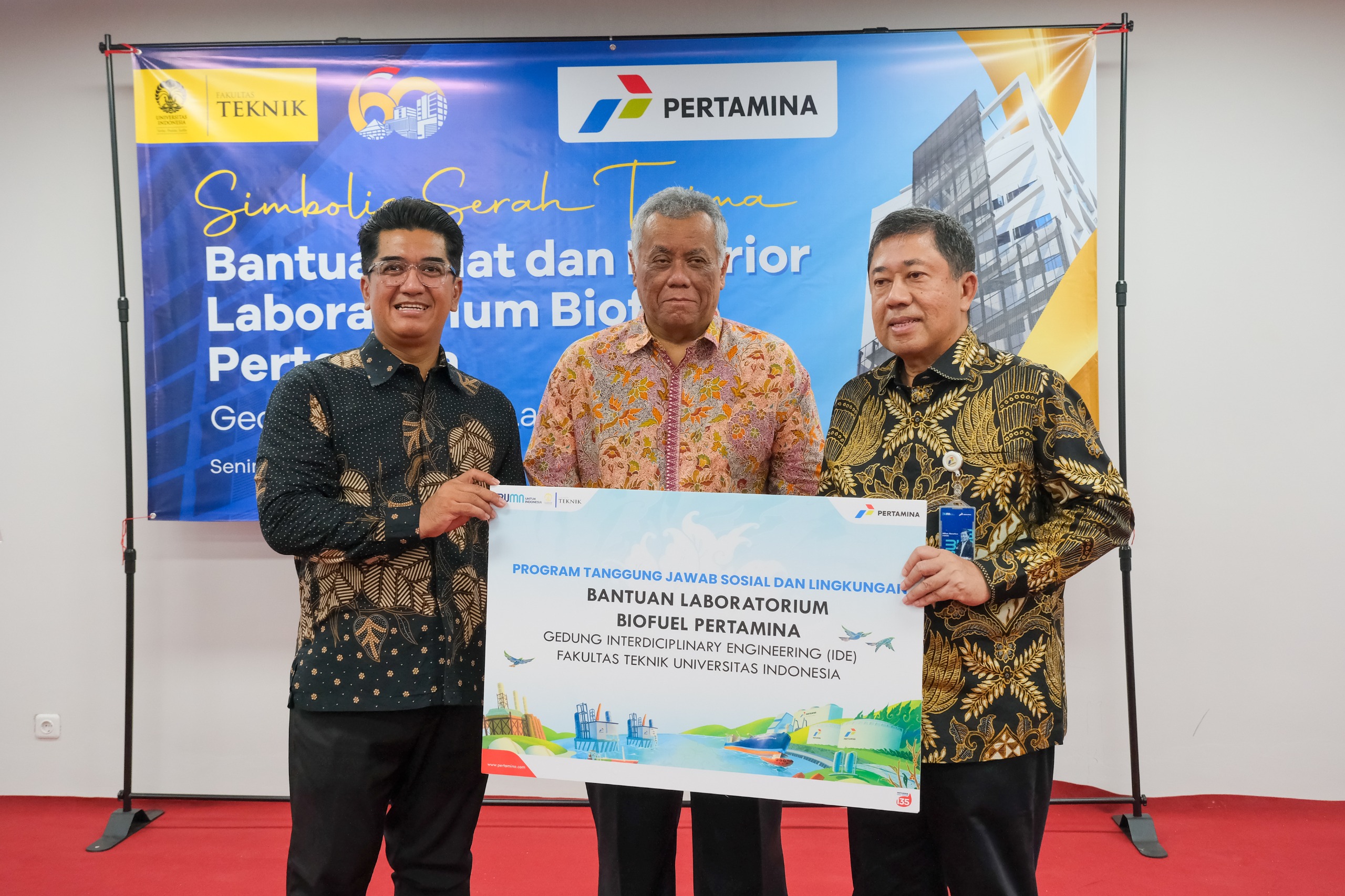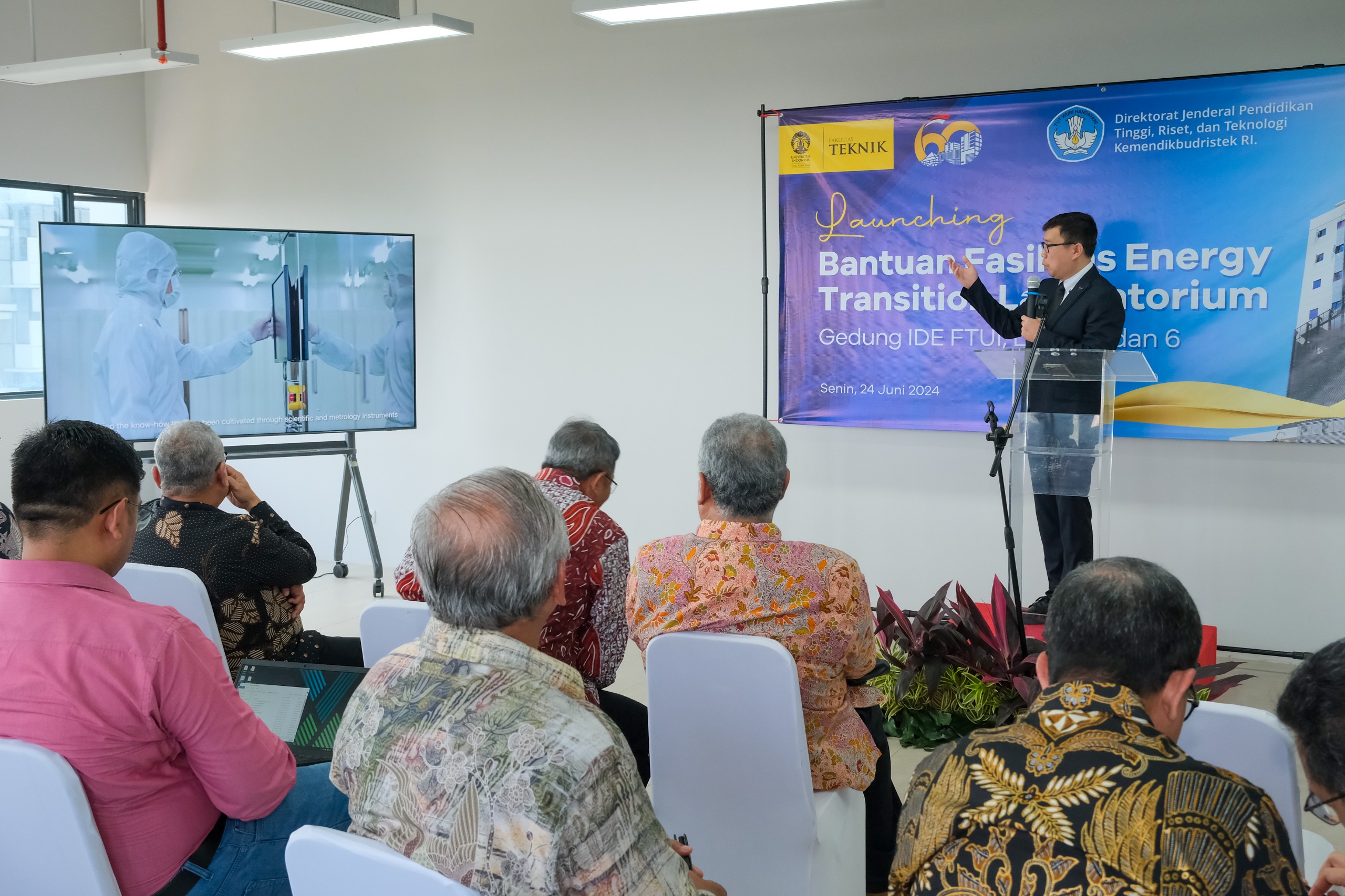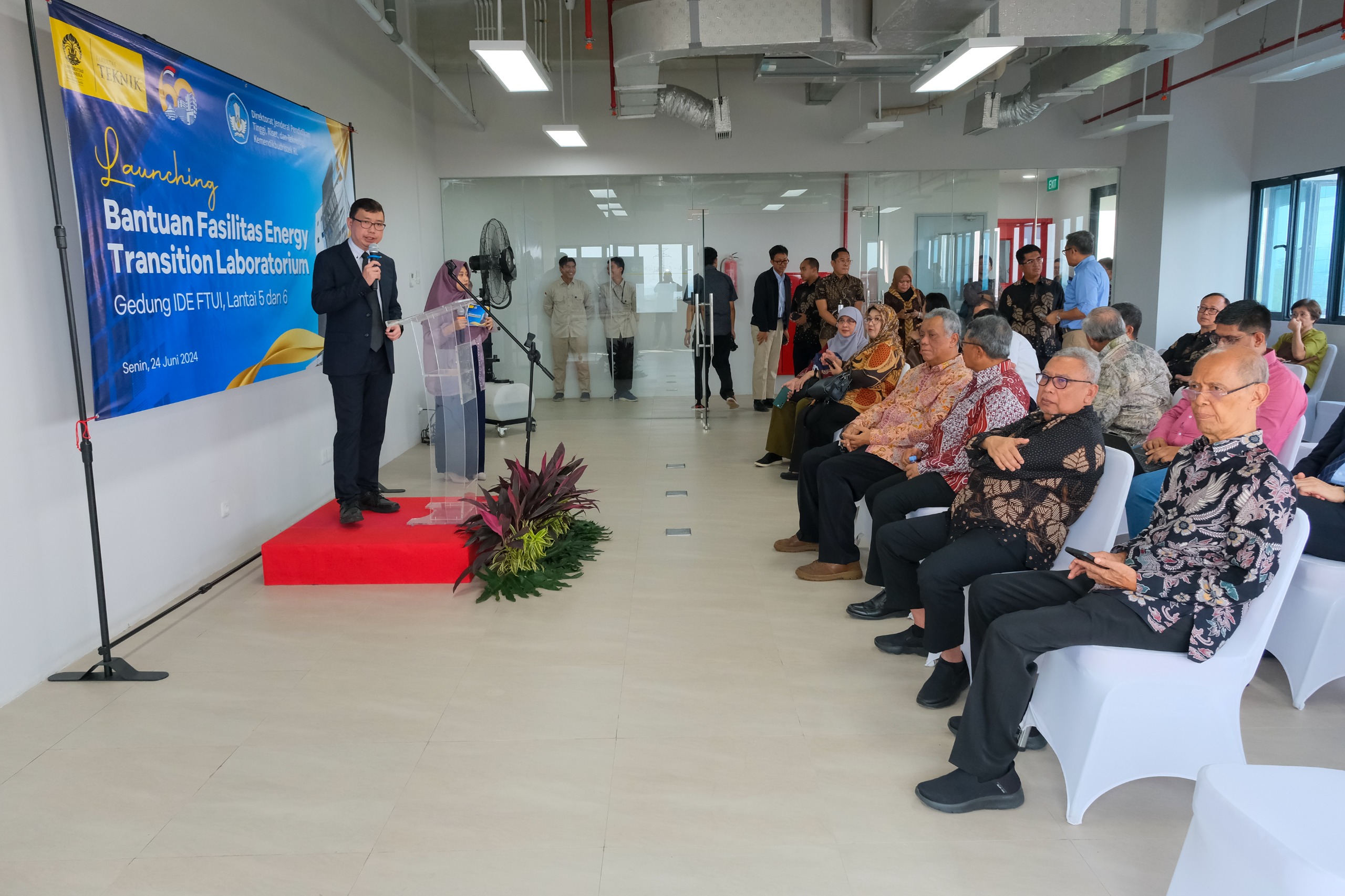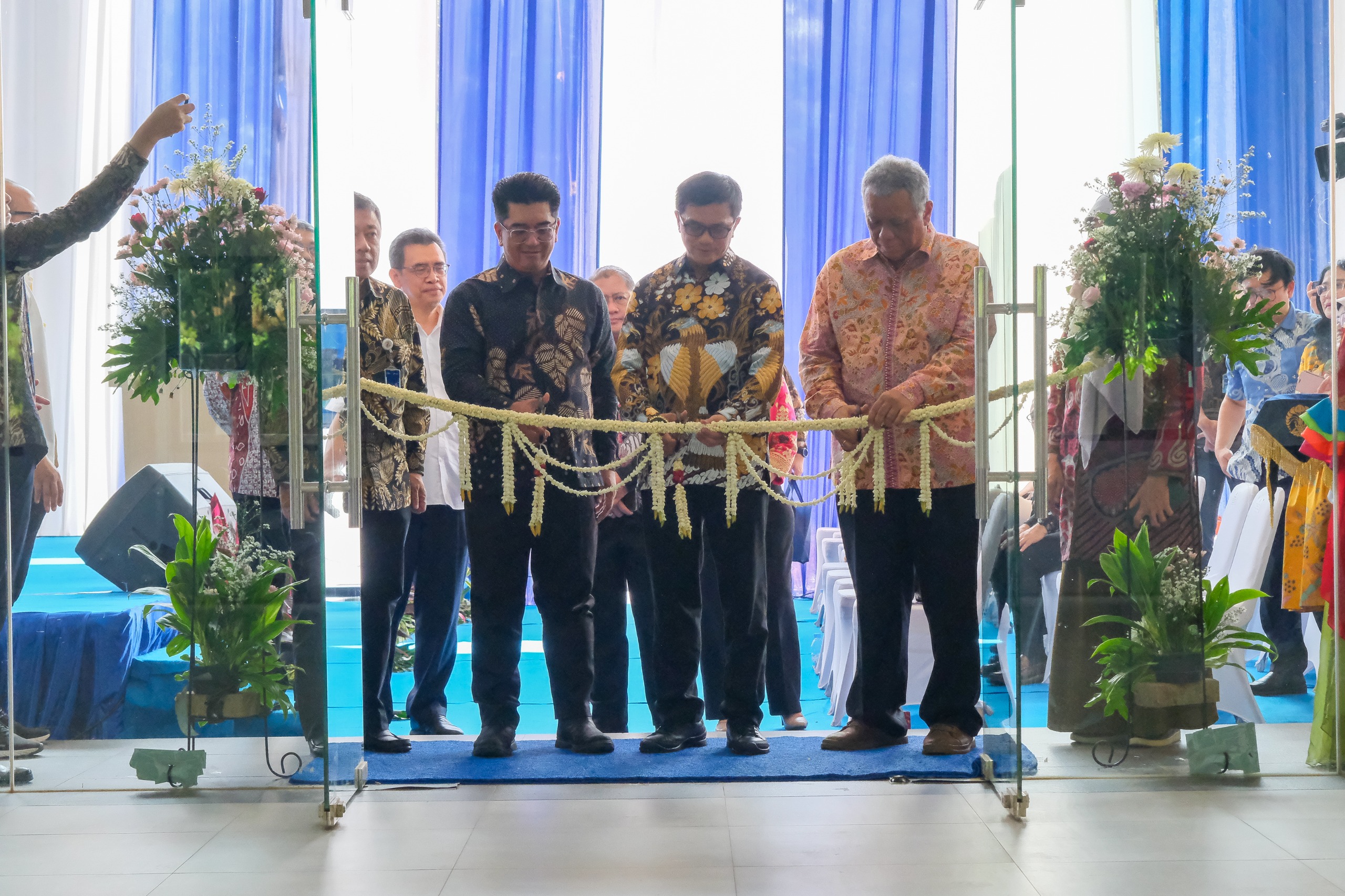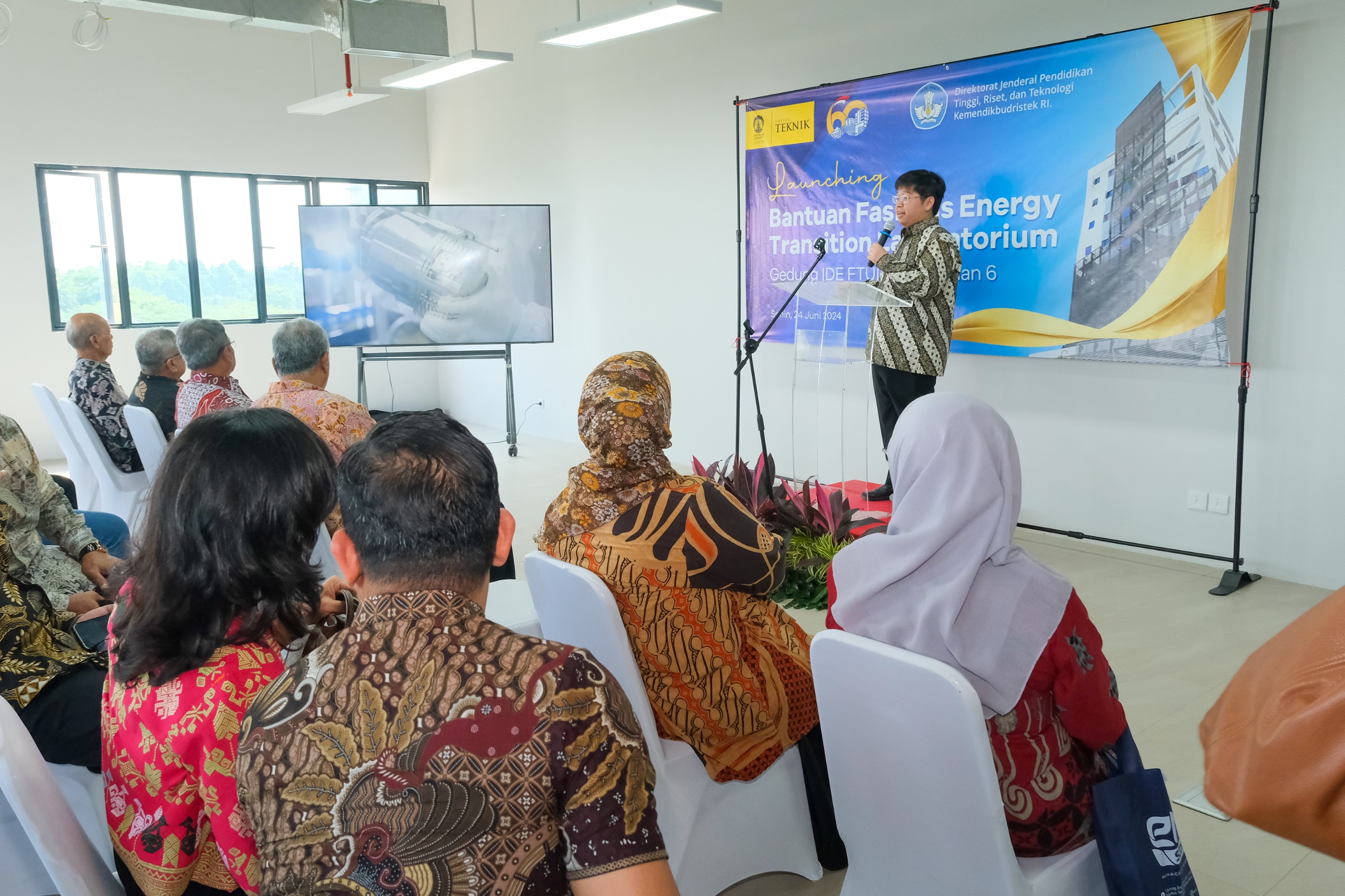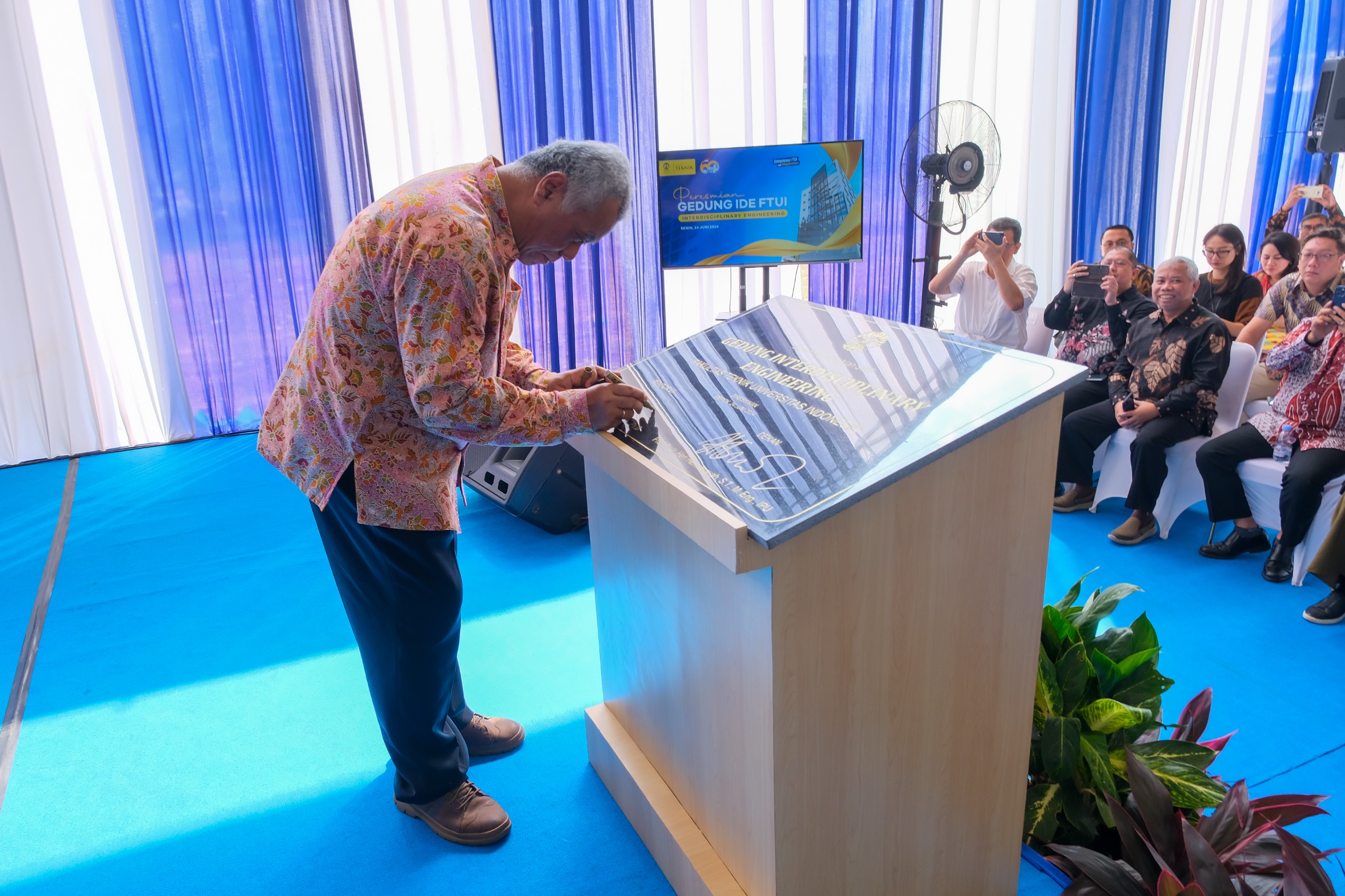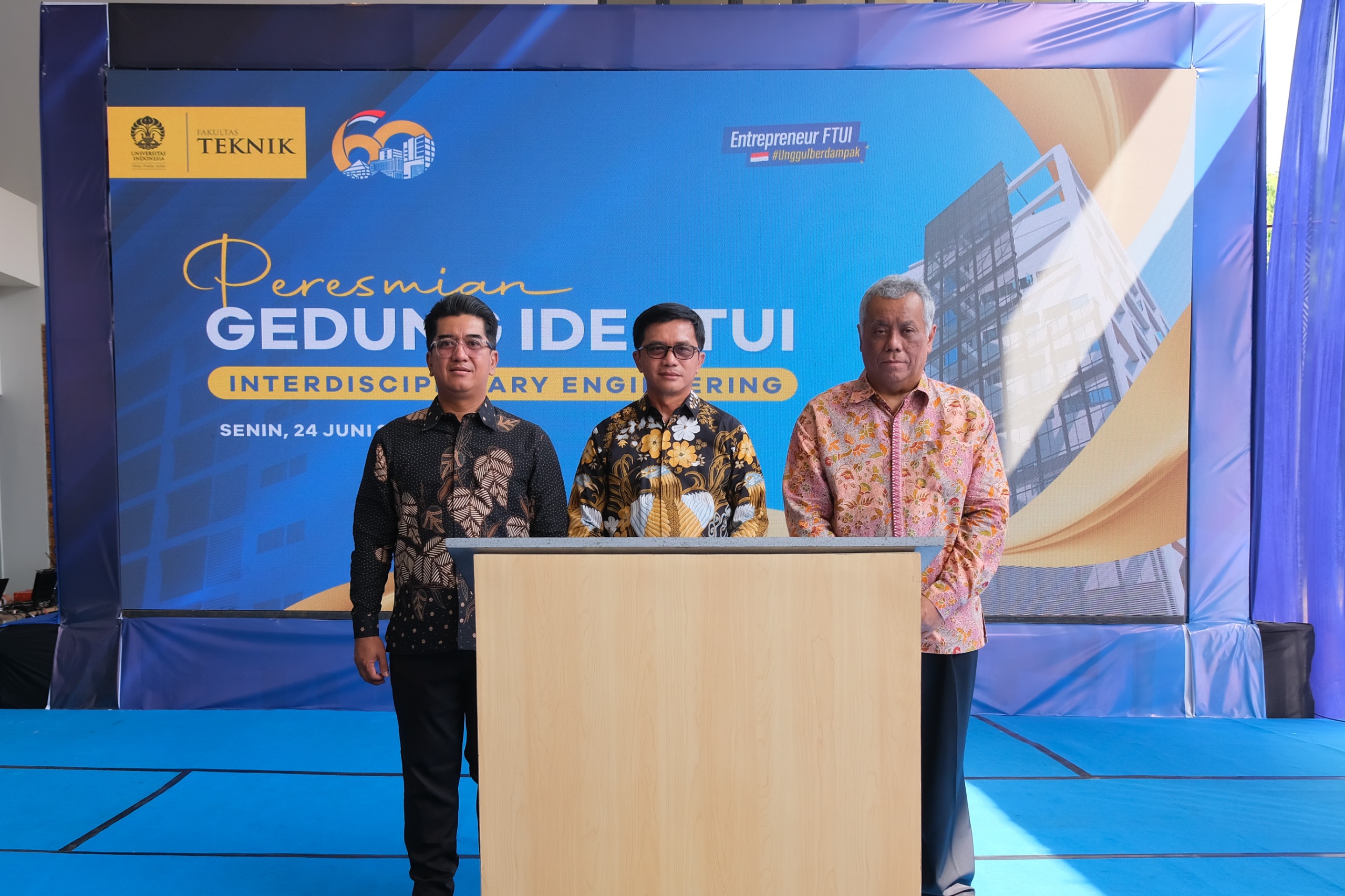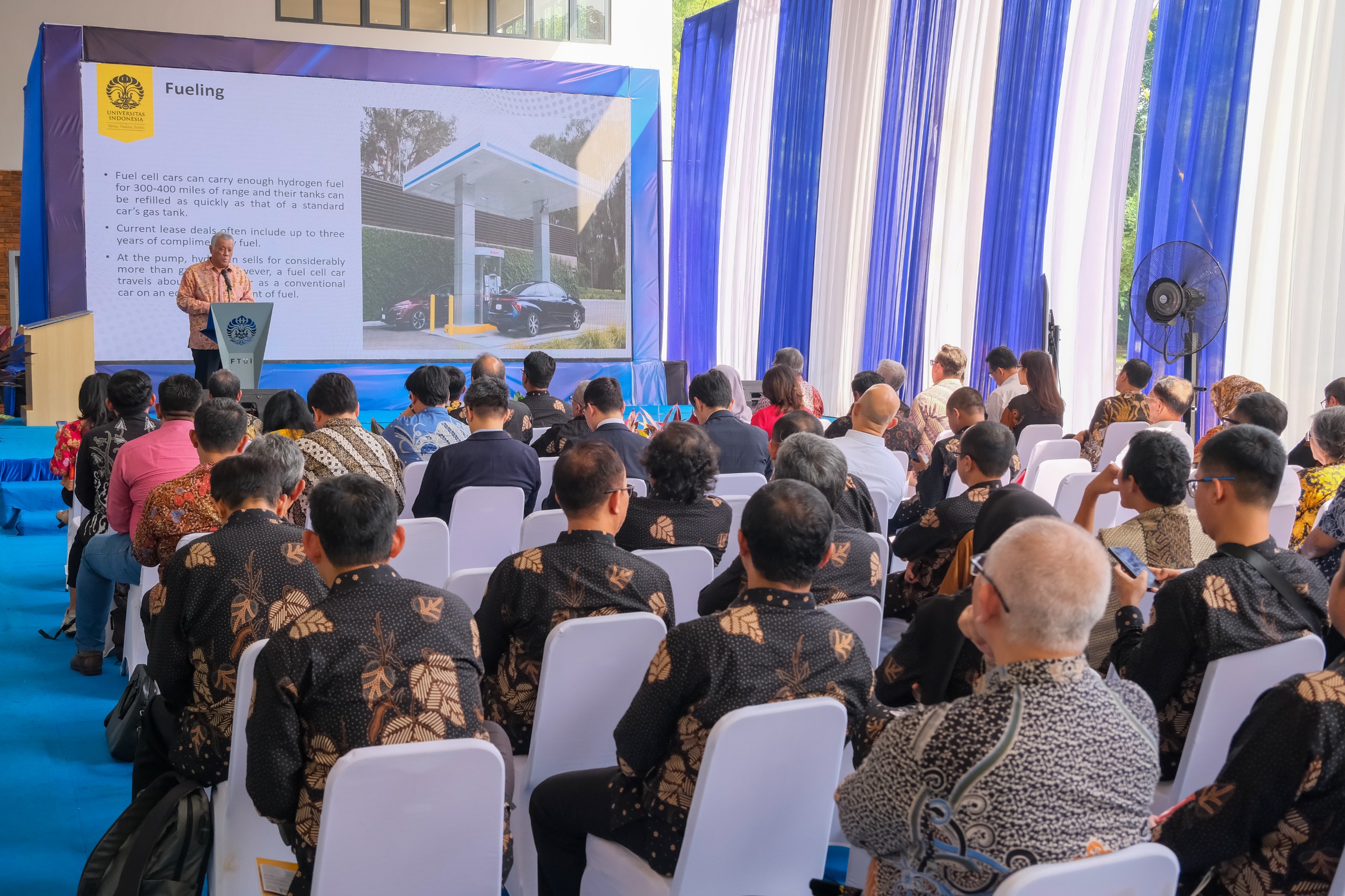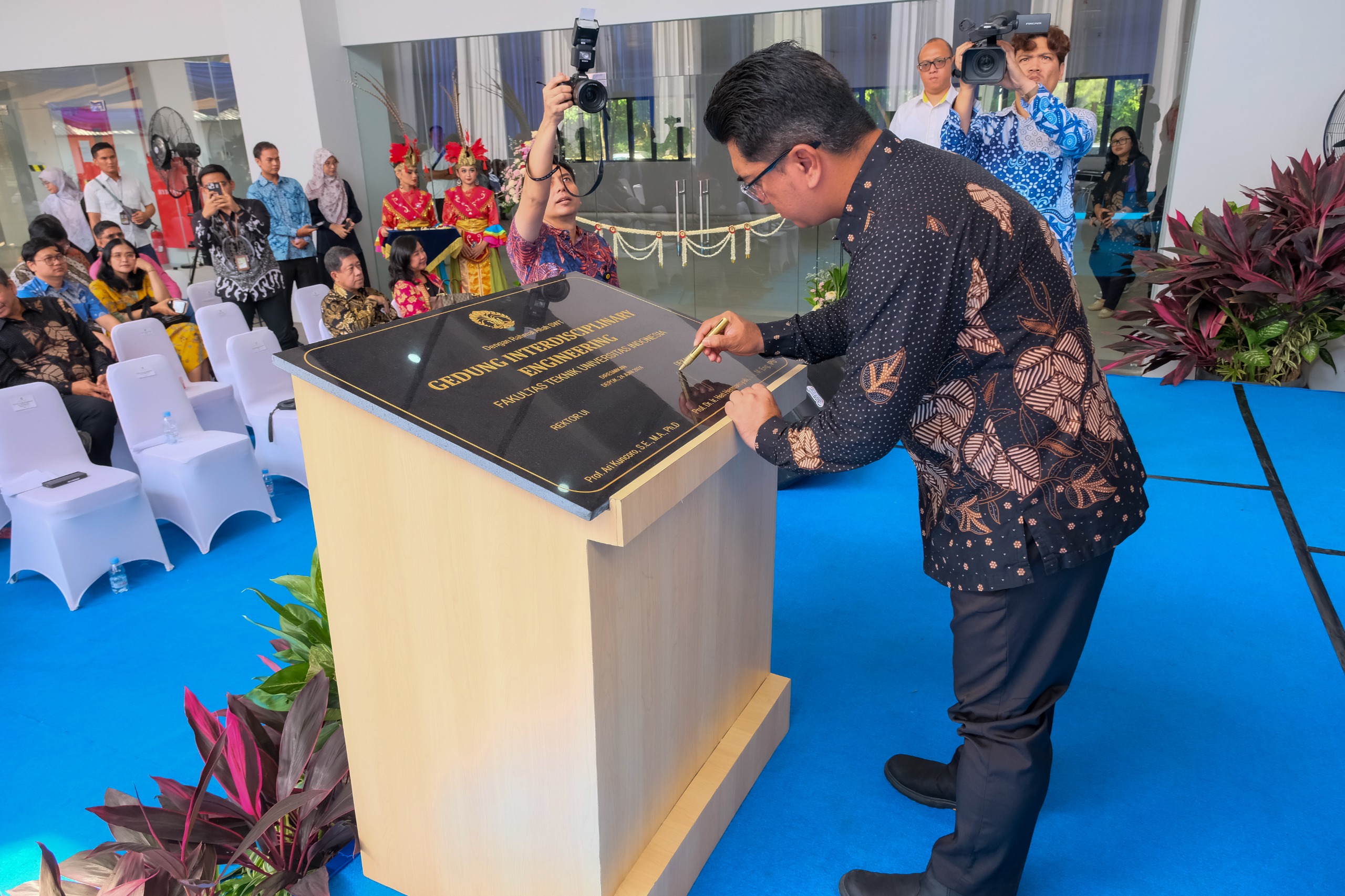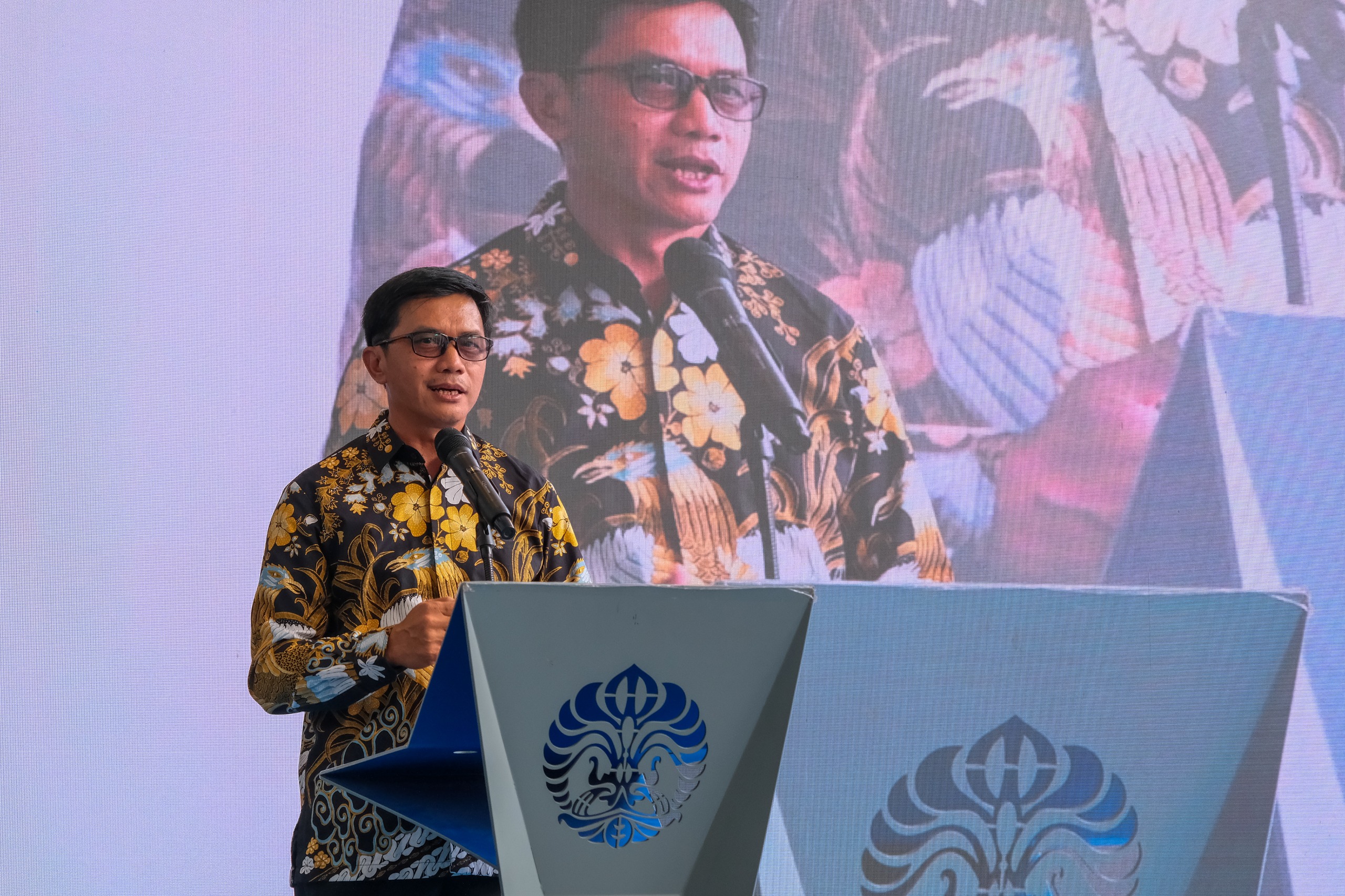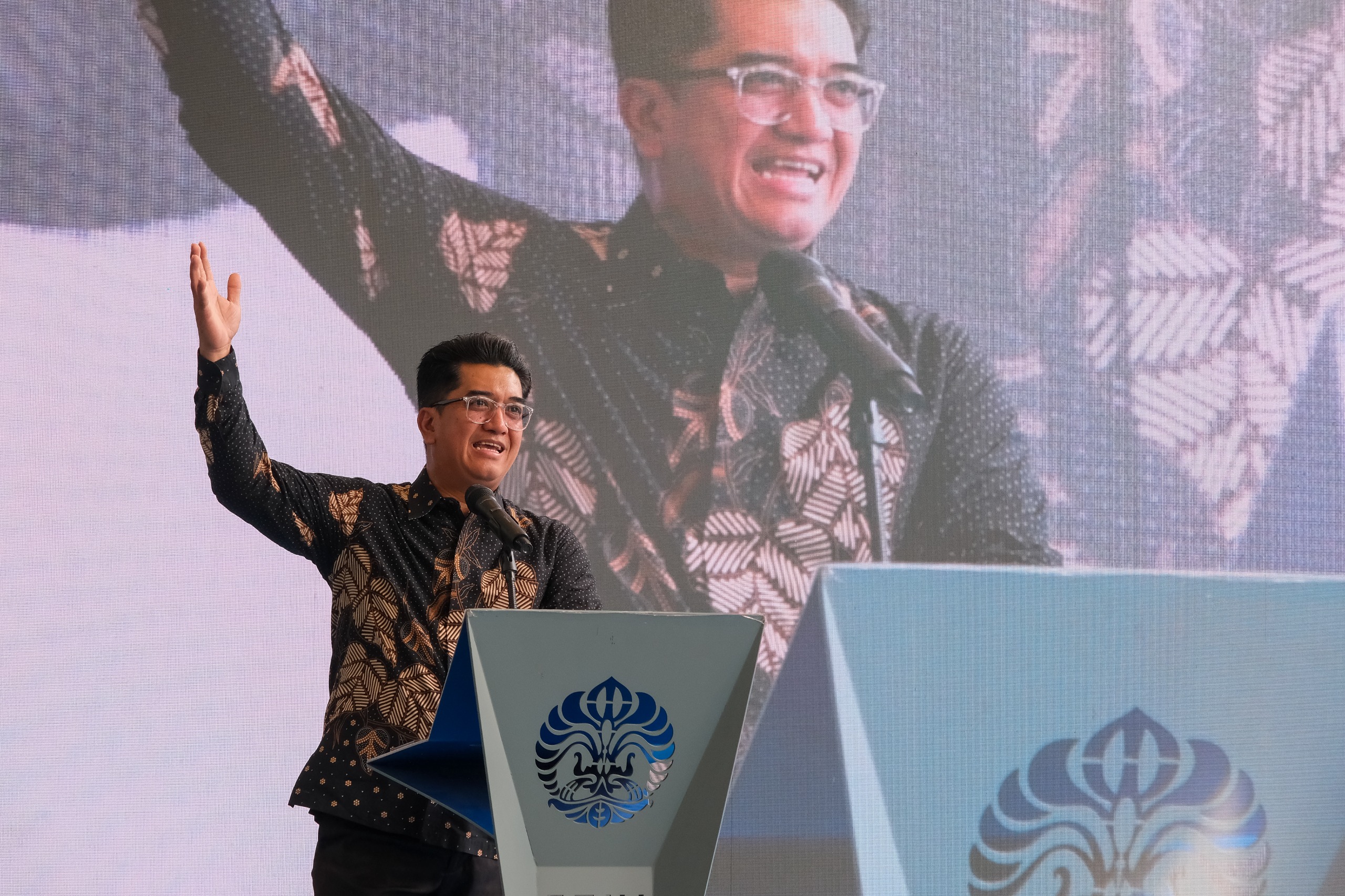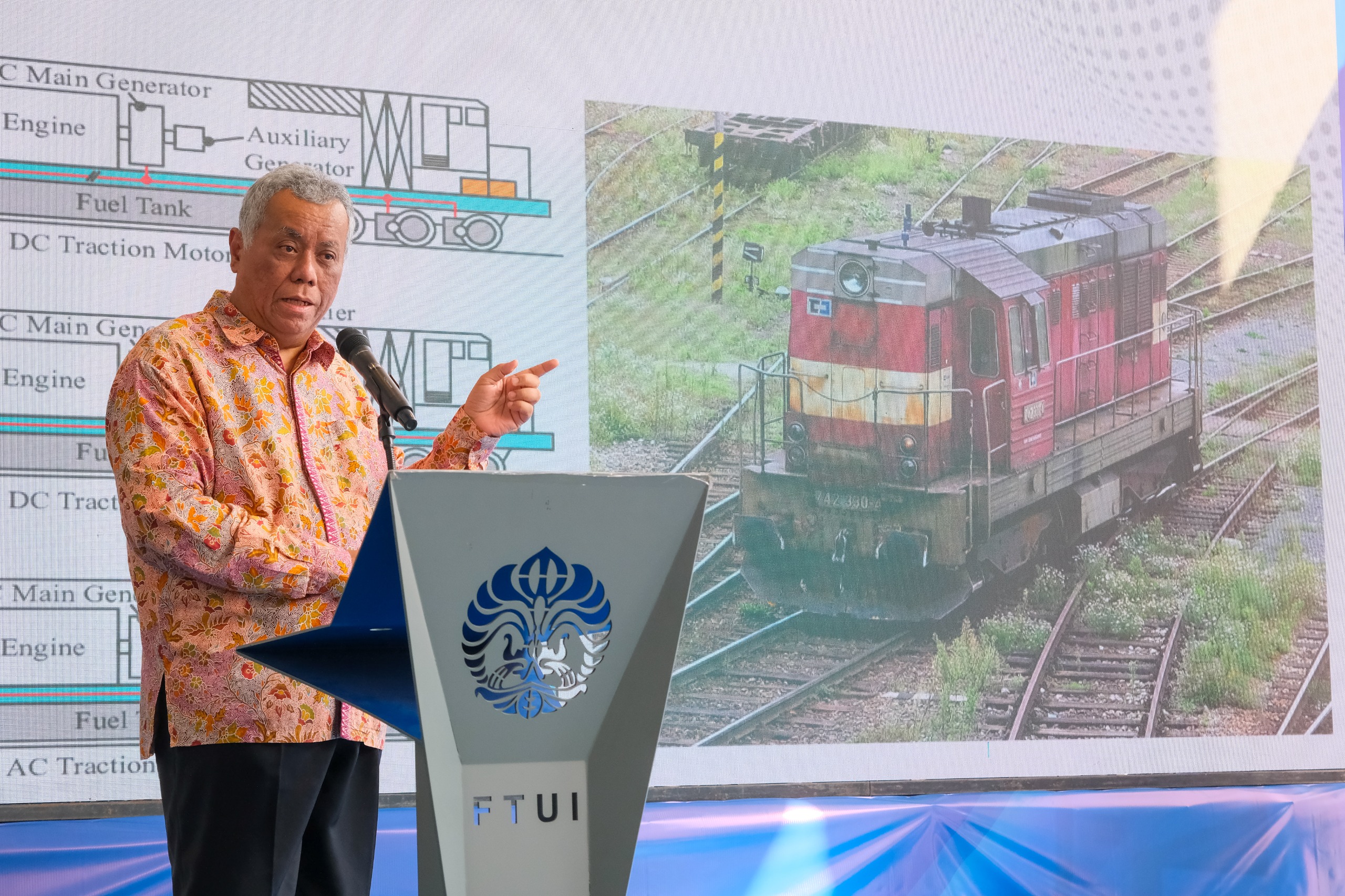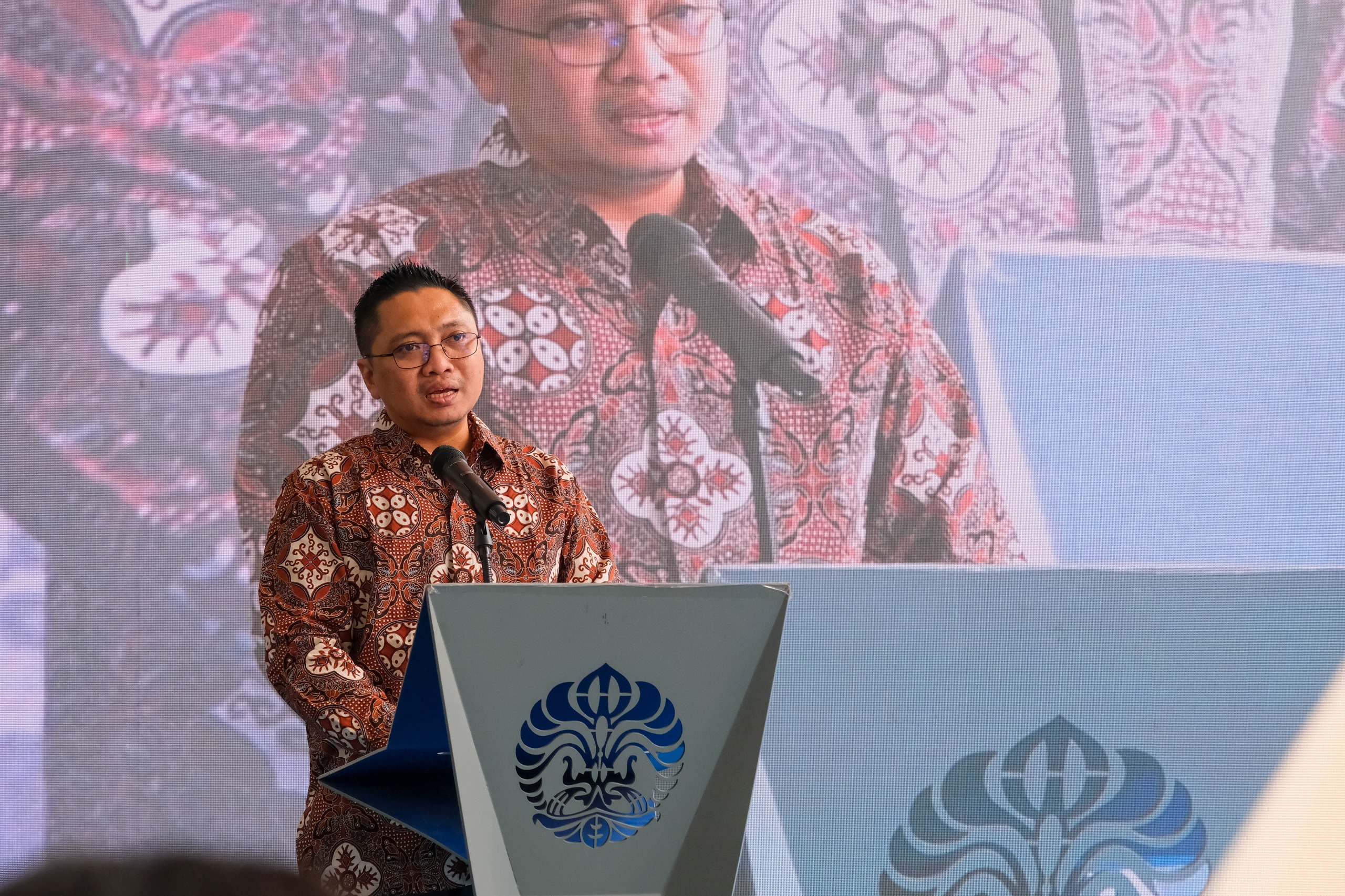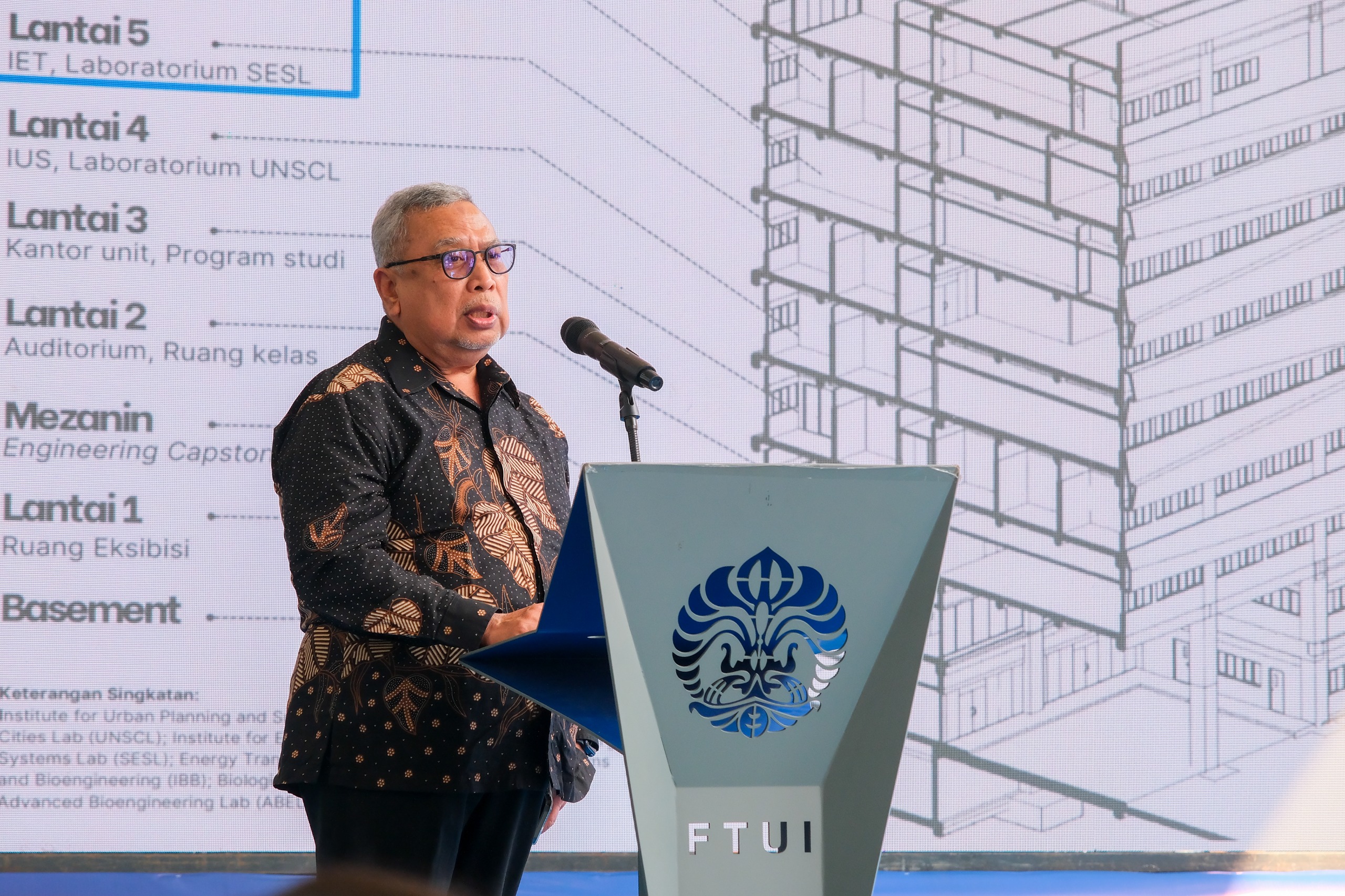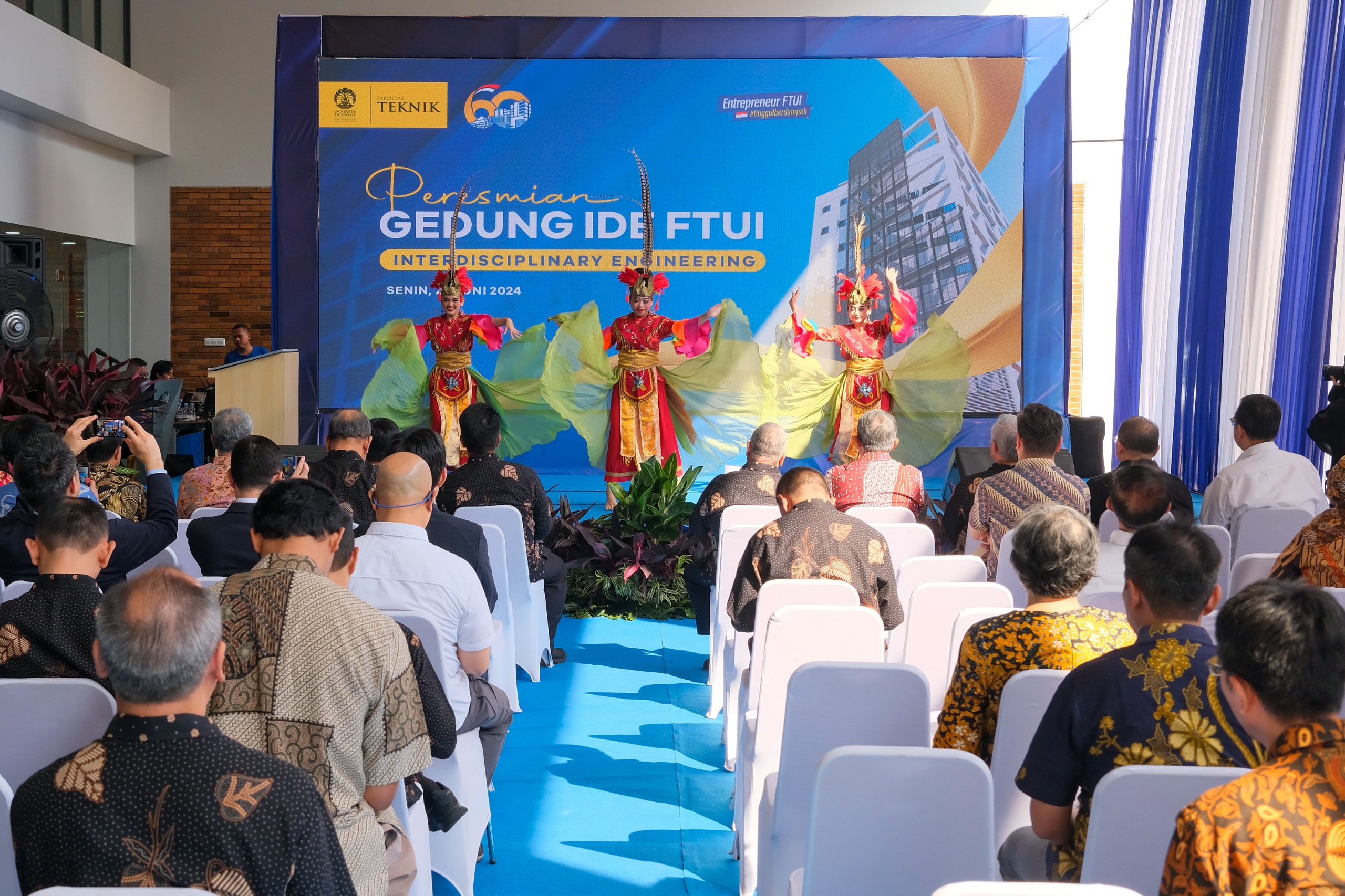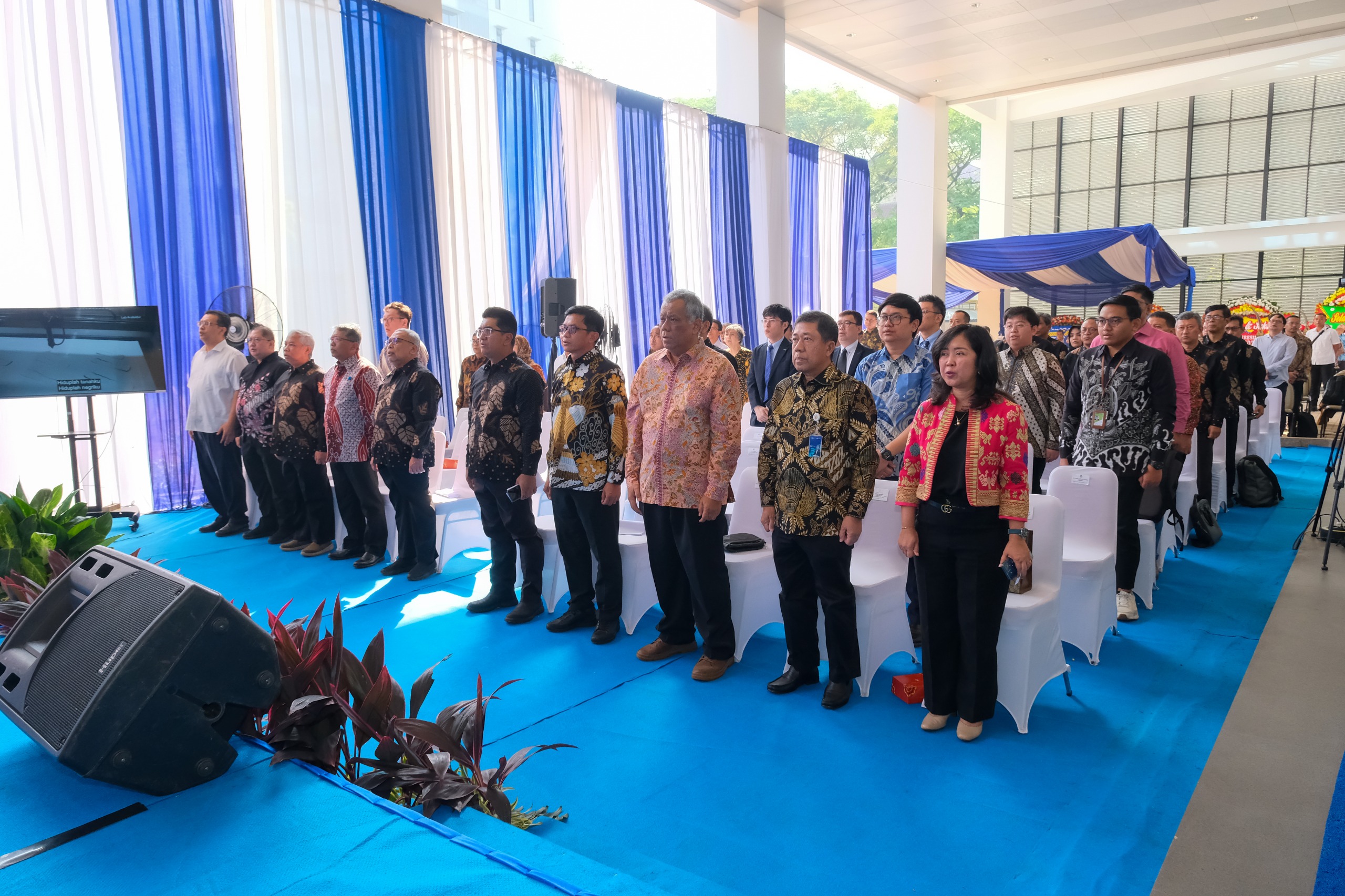The Director General of Higher Education, Research, and Technology (Diktiristek), Prof. Dr. rer.nat. Abdul Haris, M.Sc., attended the inauguration of the InterDisciplinary Engineering (IDE) Building at the Faculty of Engineering (FT), Universitas Indonesia (UI), on Monday (24/6). The inauguration was marked by the signing of the inscription and ribbon cutting by the Rector of UI, Prof. Ari Kuncoro, S.E., M.A., Ph.D., and the Dean of FTUI, Prof. Dr. Ir. Heri Hermansyah, S.T., M.Eng. IPU.
In his speech, Prof. Haris said, “The inauguration of the IDE Building is a new milestone in the development of interdisciplinary engineering education and research in Indonesia. We are very pleased to see UI, through the Faculty of Engineering, continuing to achieve excellence and promote technological advancement while fostering innovation and collaboration across disciplines. Hopefully, this facility will support learning and serve as an experimental space for Indonesia’s best future engineers, and help FTUI become a leading and globally competitive engineering education institution.”
The IDE Building houses five advanced labs: Urban Nexus and Smart Cities Laboratory (UNSCL), Sustainable Energy System Laboratory (SESL), Energy Transition Laboratory (ETL), Biological System Engineering Laboratory (BSEL), and Biofuel Advanced Laboratory (BAL). ETL and SESL received support from Diktiristek through the Inter-University Center of Excellence (PUAPT) Grant, amounting to 63 billion rupiahs. PUAPT is a funding program for five Legal Entity State Universities (PTN-BH) that are among the top 500 world-class universities, including UI.
Prof. Heri stated that the five advanced labs in the IDE Building will be used to produce two main outputs: research results and interdisciplinary public services. “This building will be home to three interdisciplinary engineering institutes launched in 2022, namely the Institute for Energy Studies (IES), Institute for Biosystems and Bioengineering (IBB), and Institute for Urban Planning and Smart City (IUS). These three institutes will manage the five advanced labs that will occupy the 4th to 8th floors of the IDE Building,” he said.
The five advanced labs located on various floors of the IDE Building each have their specific functions. UNSCL on the 4th floor has four sub-laboratories (sub-labs): a Media Laboratory supporting urban design visualization, a Virtual Reality Laboratory enabling virtual urban simulations, an Urban and Regional Laboratory that provides tools for data collection and analysis, and an Integrated Studio serving a virtual learning space for practical applications and discussions. The UNSCL laboratory supports multidisciplinary research in smart city development.
SESL on the 5th floor has two sections: the energy modelling sub-lab and the Data Center and High-Performance Computer (HPC) sub-lab. This laboratory focuses on modelling and designing sustainable energy systems and their relation to economic, environmental, social, and policy aspects supporting the achievement of net zero emissions by 2060.
ETL on the 6th floor has six sub-labs. The Synthesis and Characterization Laboratory facilitates the creation and characterization of energy conversion and storage materials. The Carbon Capture & Utilization Laboratory researches CO2 capture and utilization as raw materials for chemical and material synthesis efforts towards a circular economy. The other four sub-labs—Photovoltaics Laboratory, Green Hydrogen and Fuel Cell Laboratory, Battery Laboratory, and Electrophotochemistry Laboratory—are research centres related to the use of solar energy and electricity for green energy synthesis.
BSEL on the 7th floor is divided into two parts: a simulation workspace and the HPC sub-lab focusing on modelling biological system interactions equipped with state-of-the-art biomedical hardware and software. Meanwhile, BAL—including the Pertamina Biofuels Laboratory—on the 8th floor, designed with Biosafety Level (BSL) 1 and 2, accommodates research with various biological objects such as fungi and bacteria. This laboratory received funding from PT Pertamina of about 13 billion rupiahs for laboratory equipment and interiors. This support strengthens research in Biosystems and BioEngineering through the production of biofuels and green chemicals at FTUI.
“In addition to the five advanced labs as the primary functionalities, the IDE Building also incorporates sustainability principles with a green building concept that is efficient in energy, water, lighting, and air circulation usage. Most of the building materials come from recycled and eco-friendly certified wood. Furthermore, a zero-waste policy is implemented through water harvesting and optimal waste management. With support from various parties, FTUI maintains its title as the best engineering campus producing high-quality graduates and research, contributing to impactful and globally competitive sustainable development,” said Prof. Heri.
***
Public Communication Office
Faculty of Engineering, Universitas Indonesia

